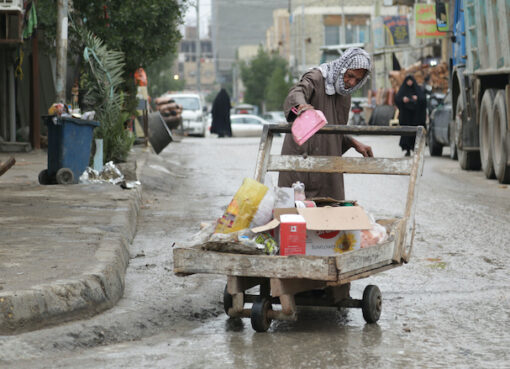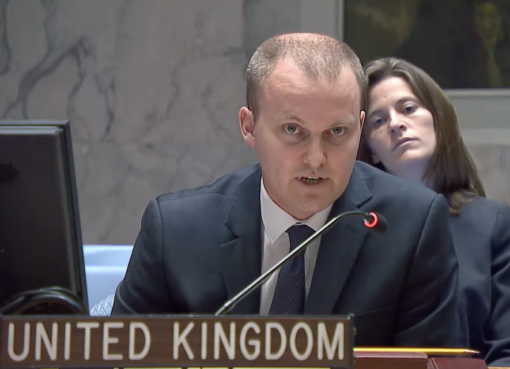BAGHDAD (AP)
Long-time Iraqi civil servant Qusay Abdul-Amma panicked when his monthly salary was delayed. Days of waiting turned to weeks. He defaulted on rent and other bills.
A graphic designer for the Health Ministry, he uses about half his salary to pay his rent of nearly 450,000 Iraqi dinars a month, roughly $400. If he fails to pay twice in a row his landlord will evict him and his family, he fears.
“These delays affect my ability to survive,” Abdul-Amma said.
Iraq’s government is struggling to pay the salaries of the ever-swelling ranks of public sector employees amid an unprecedented liquidity crisis caused by low oil prices. September’s salaries were delayed for weeks, and October’s still haven’t been paid as the government tries to borrow once again from Iraq’s currency reserves. The crisis has fueled fears of instability ahead of mass demonstrations this week.
“We are asking the same people we are protesting against and criticizing to reform the system,” said Sajad Jiyad, an Iraq researcher.
The white paper’s calls for cutting public sector payrolls and reforming state finances would undermine the patronage systems that the political elite have used to entrench their power.
A major part of that patronage is handing out state jobs in return for support. The result has been a threefold increase in public workers since 2004. The government pays 400% more in salaries than it did 15 years ago. Around three quarters of the state’s expenditures in 2020 go to paying for the public sector — a massive drain on dwindling finances.
“Now the situation is very dangerous,” said Mohammed al-Daraji, a lawmaker on parliament’s Finance Committee.
One government official said political factions are in denial that change is needed, believing oil prices will rise and “we will be fine.”
“We won’t be fine. The system is unsustainable and sooner or later it will implode,” the official said, speaking on condition of anonymity to discuss internal politics.
Iraq’s activists have called for a march on Oct. 25, expected to draw large crowds, a year since massive anti-government protests first brought tens of thousands to the streets demanded reforms and an end to the corrupt political class.
Abu Ali, a merchant in Baghdad’s commercial district of Shorjah, fears what the following months have in store. The state is the primary source of employment for Iraqis, and civil servants are the lifeblood of his business.
Source: AP News, October 23, 2020
To read the full article, please click on this link








Comment here